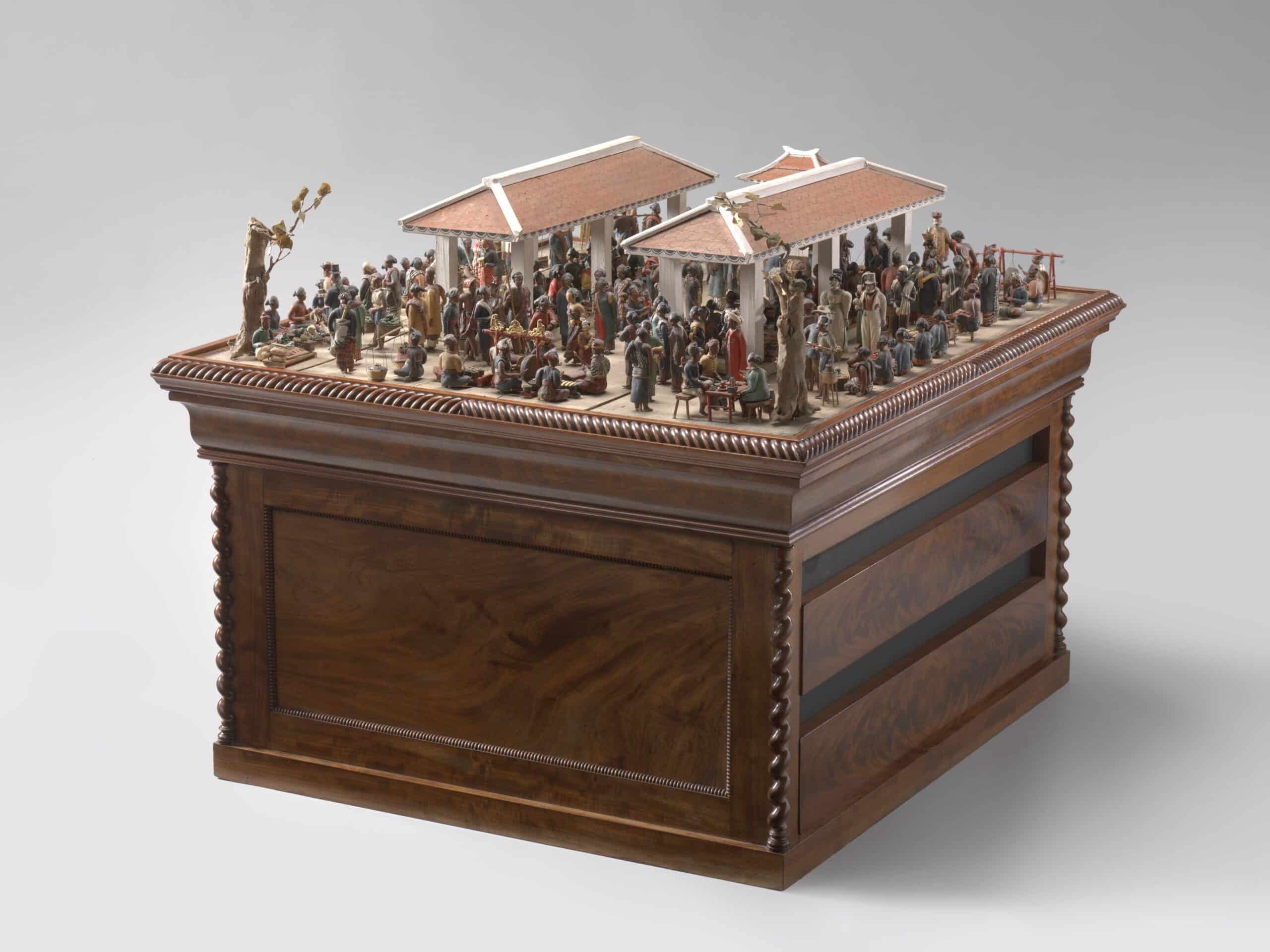Eighteen young writers from Flanders and the Netherlands have brought nineteenth-century artefacts from the Rijksmuseum to life. They wrote their stories in response to the question: what do you see when you look at these objects through the lens of impending doom? Charlotte Remarque took inspiration from a model of a Javanese marketplace. ‘There is a shadow world right behind ours that orchestrates things that way. There is no such thing as coincidence.’
 Anonymous, Model of a Javanese Marketplace, c. 1830 – c. 1860
Anonymous, Model of a Javanese Marketplace, c. 1830 – c. 1860© Rijksmuseum Collection, Amsterdam
The Market
Not without contempt, he presses the fruit seller’s cheek into shape with his left thumb. Round, shiny and in ruddy good health, just like the melons by her feet, relaxing among trader friends, this is what she is meant to look like, and with his nail he adds a bit more depth to one corner of her mouth, hinting at a smile, innocent gossip, furtive girl talk.
He wipes his hands on his trousers and fills his pipe by the window. The sickly-sweet smell of the dough makes his throat feel tight.
When he walked round the market yesterday, she wasn’t there. Whenever he goes, he keeps his work clothes on, strides purposefully and does not saunter; he plays the big artist, even though he is disgusted when he catches glimpses of his idiotic apron in the shiny ironware. He is no artist, which is why he refuses to sign his name on the keepsakes, proudly declines to take advantage of the paying Dutchman, skilfully slimmed down and bolted on in the middle, and his quiet wife whose pointy face cannot help, not even with the best will in the world, but stick uncomfortably out of her high-necked dress.
She wasn’t there yesterday; her young son was sitting in her place. The scrawny kid was actually showing the beginnings of the other man’s beaklike nose, like some kind of final, definitive stamp. He could barely look at the child, but deliberately misplaced his foot, against his basket, her basket, so his well-worn shoe toppled the stack of fruit. He hurried on but glanced over his shoulder to see the small hands carefully turning the bruises on the fruit inwards. Something he learned from his mother.
Feeling breathless, he ordered tea and cursed his spendthrift nature; he had tea at home, which was better too, and without wanting to he listened to the tea lady’s shrill voice. It was about her, of course it was. There is a shadow world right behind ours that orchestrates things that way. There is no such thing as coincidence. He drank his bitter tea as quickly as he could, and burnt his tongue, but it was not fast enough and now he knows that she was not at the market because she has been ill for days, in the family way again and the infant just would not come out. The tea lady spoke the words fever and bleeding with gusto and concluded with a click of the tongue that such a baby, breech and a stargazer to boot, never comes out, meaning she will definitely not live to see the morning.
He had gone home and had plucked all the children off his marketplace. The toddler running around among the grown-up legs, the sling he had draped over a vendor’s shoulders, he chucked them out; the dough had already hardened and could not be reused.
But that was yesterday, and today he has to carry on, because everything has to be completed and dry by next week. He picks her up again, his fruit seller, and distorts his face in an imitation of her half-smile.












